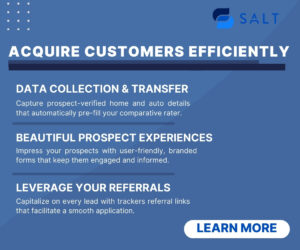Securing sensitive information is more critical than ever. Independent insurance agents handle a vast amount of confidential data, making it imperative to implement robust security measures. One such method is Multi-Factor Authentication (MFA), which adds an extra layer of protection to ensure the integrity of your systems and data. In this blog post, we will discuss essential tips and tricks for independent insurance agents to maximize the effectiveness of MFA and improve security across various systems and platforms.
Reduce Friction and Enhance User Experience
While MFA provides enhanced security, sometimes it will introduce friction in the user experience. To strike a balance between security and usability, consider the following tips:
Educate End Users: Provide comprehensive training and clear instructions on the purpose and benefits of MFA. Help your staff understand the importance of this security measure to gain cooperation and reduce resistance.
Utilize Single Sign-On (SSO): Implementing SSO allows users to authenticate once and access multiple systems without repeated logins. This streamlines the authentication process, reducing friction and increasing efficiency.
Implement “Remember Me” Functionality: Allow users to bypass MFA for subsequent logins on trusted devices, provided they have passed MFA previously.
Leverage MFA for O365 and Agency Management Systems
Microsoft 365 (O365) and agency management systems contain sensitive client information, making them prime targets for cyber-attacks. Here’s how you can implement MFA effectively in these critical systems:
O365: Microsoft offers robust MFA options, including authenticator apps or SMS texting. To enhance security, prioritize authenticator apps over SMS texting. Authenticator apps generate time-based one-time passwords (TOTPs) that are harder for attackers to intercept.
Offline Functionality: Authenticator apps can generate codes even in areas without cellular network coverage, ensuring uninterrupted access.
Device Independence: Authenticator apps can be installed on multiple devices, providing flexibility and convenience to users.
Agency Management Systems: Explore whether your agency management software supports MFA. If available, enable MFA to protect access to this vital system. Additionally, consider using authenticator apps for MFA instead of SMS texting for stronger security. Vertafore and Applied’s agency management systems offer MFA options for secure sign-ons.
MFA for Cyber Liability Underwriting Guidelines
Cyber liability underwriting guidelines often require MFA to mitigate the risk of unauthorized access to critical systems. Ensure compliance with these guidelines by:
Identifying Critical Systems: Determine the systems that store or process sensitive data, such as client information, financial records, or policy details. Apply MFA to these systems to meet underwriting guidelines effectively.
Layered MFA: Implement layered MFA, where multiple factors are required for authentication. This may include a combination of something the user knows (password), something the user has (security token or smartphone), or something the user is (biometric verification).
Regularly Review Access Permissions: Conduct periodic audits to ensure MFA is enabled for all accounts with access to sensitive data.
Best Practices for System Administrators
Administrators play a crucial role in maintaining a secure environment. Consider the following best practices for their accounts:
Separate Admin Accounts: System administrators should have separate accounts that are not linked to their primary emails. This separation minimizes the risk of compromising the administrator’s primary email account leading to unauthorized access.
Privilege Separation: Assign appropriate access levels to system administrators based on their responsibilities. Limit administrative privileges to the minimum necessary, reducing the potential impact of a compromised account.
Multi-Factor Authentication is a powerful security measure that can significantly enhance the protection of sensitive information for independent insurance agents. By reducing friction, utilizing SSO, leveraging authenticator apps, meeting underwriting guidelines, and following best practices for system administrators, you can strengthen the security posture of your agency. Remember: investing in robust security measures like MFA is essential to safeguard your clients’ data and maintain their trust in your services. Stay proactive, stay secure! Connect with Catalyit for more information on how we can help with enhancing your security.














































